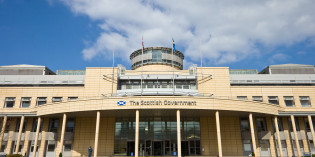Tag: Katie Boyle

The legitimacy of the EU referendum requires that citizens are informed of the implications of their decision
The campaign over whether to leave the EU or remain a member has predictably focused on matters such as immigration and the economy. However, at stake at the referendum later this year are a set of rights that UK citizens have accrued by virtue of their EU citizenship. Here, Katie Boyle argues that the democratic […]

The best of Democratic Audit’s 2015 Devolution coverage
In the wake of the Scottish referendum, the debate around devolution in the UK, and in England more narrowly, has intensified. This post features some of Democratic Audit’s best 2015 analysis of national, regional and sub-regional devolution. Similar PostsEngland’s local elections 2018: the unusual case of Sheffield City Region’s mayoral contestThe current talks in Northern Ireland exemplify […]

The Government’s new EVEL timeline still isn’t sufficient to facilitate the necessary debate and deliberation
In the immediate aftermath of Scotland’s vote to remain in the United Kingdom, the Prime Minister David Cameron proposed removing the rights of Scottish MPs to vote on ‘English only’ issues – a process which would be contemporaneous with the granting of new powers for Scotland. Katie Boyle argues that there are at least three […]

The vow delivered? Experts respond to the publication of the Smith Commission’s recommendations
The Smith Commission, the body tasked with recommending reforms to the governance of Scotland recently released its final report. Democratic Audit asked Scottish constitutional and political experts John Curtice, Katie Boyle and Stephen Tierney, and Sionaidh Douglas-Scott to respond. (Part 1 can be found here). Similar PostsTo appreciate the importance of the Brexit referendum, we must […]

Scotland’s draft interim constitution: limiting or liberating?
In part two of our piece in which experts give their views on the Scottish Government’s draft interim constitution, we hear from Katie Boyle of the University of Limerick, Stirling University’s Ben Saunders, and Glasgow University’s Thomas Lundberg. They weigh up whether the document is up to the task of taking Scotland through the difficult transition to independence […]

Yes or no, 2014’s Scotland referendum carries significant constitutional implications
On 18 September 2014 the Scottish electorate will be asked to vote in a referendum on whether Scotland should be an independent country, with the result still in the balance. Stephen Tierney and Katie Boyle argue that there are meaningful constitutional implications for Scotland and the UK, whatever the result in 2014. Following the Edinburgh […]


 Democratic Audit's core funding is provided by the Joseph Rowntree Charitable Trust. Additional funding is provided by the London School of Economics.
Democratic Audit's core funding is provided by the Joseph Rowntree Charitable Trust. Additional funding is provided by the London School of Economics.